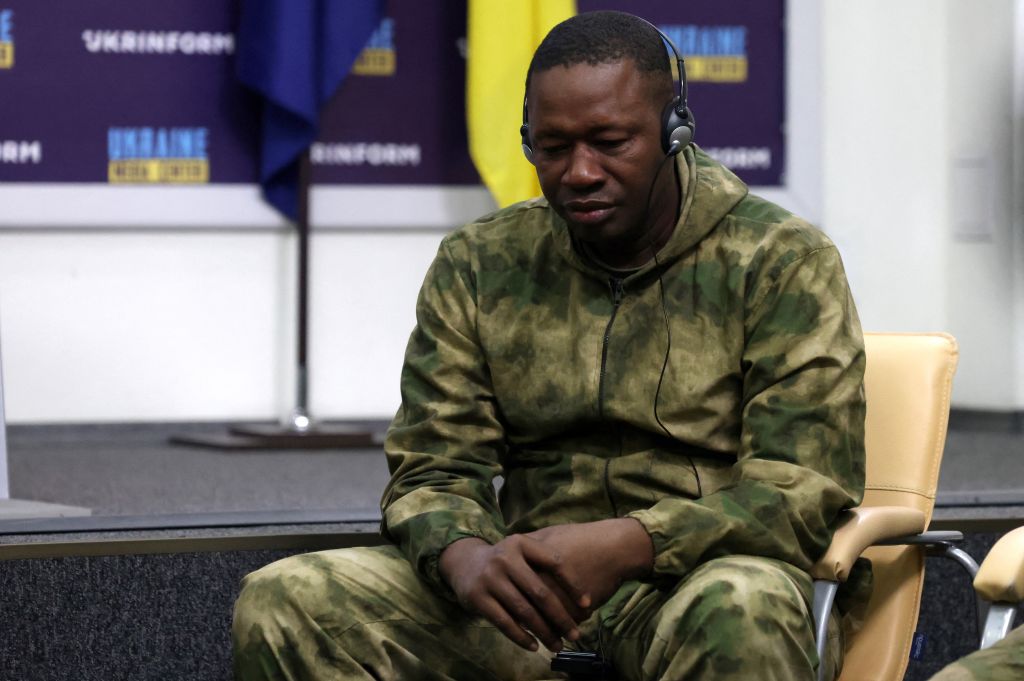More African governments are warning their citizens of the dangers of accepting bogus Russian scholarships, as many of the students who have accepted them have ended up conscripted into the Russian military and thrown onto the frontlines of the war in Ukraine.
Ukraine captured and held people from Togo after they participated “in military operations alongside Russian armed forces,” Togo’s foreign ministry said on May 2. “[The] majority of compatriots, in particular young students, had left Togo under alleged scholarships offered by structures claiming to be based in Russia.”
The ministry called on citizens, “particularly young people who wish to pursue their studies abroad, to exercise utmost vigilance” and urged them “to verify the authenticity of scholarship offers before making any commitment, and to contact the relevant departments or any other ministry concerned … to obtain reliable and secure information before any departure abroad, particularly to Russia.”
In March, the Martin Luther King Movement, a prominent human rights organization in Togo, notified authorities about the case of a Togolese student who was captured on the battlefield and detained by Ukraine.
“Having received his study visa at the Russian embassy in Cotonou, the compatriot left Togo for Russia on August 21, 2024,” the King Movement said in a statement. “Arriving in Russia, he was forced to join the army to go to the front in Ukraine. It was there that he was seriously wounded, captured and thrown in prison.”
An unidentified Togolese man said he and other Africans were manipulated and forcibly conscripted into fighting for Russia.
“We entered the army by mistake,” he said in a video interview with Ukrainian authorities. “They betrayed us.”
There have been numerous cases of African nationals, including students, from Benin, Cameroon, the Democratic Republic of the Congo, Kenya, Senegal and Togo, who say they were tricked or forced into battle. In Nigeria, Russia’s ambassador, Andrey Podelyshev, recently spoke of plans to dramatically increase scholarships to Russian institutions for Africans, noting that there are about 32,000 African students currently enrolled in Russian universities, including about 2,000 from Nigeria.
“The current quota will be increased every year to achieve targets,” he told Nigerian journalists on June 9 in Abuja, according to the Peoples Gazette. “The Russian government has currently provided 220 scholarships to Nigerian students for the 2025 academic year approved in 2024, and preparations are on for the students to begin their studies in September.”
Ghanaian journalist Godwin Asediba has corresponded with 14 of his countrymen who say they were forced to join the Russian army.
“Their very first message was a cry for help,” he told France 24. “It could fall under human trafficking because these people were lured. They traveled under false pretenses, and they should have been told exactly what they were going to do.”
Koulékpato Dosseh, 27, was a teacher and farmer in Togo. He went to Russia to study medicine in hopes of building a hospital when he returned to his home country.
“I only studied for about a month,” he said in a video interview with United24 Media that was published on April 12. “I couldn’t stay where I was. [I was told] that if you’re in the country without proper documents they expect you to return to your home country after your studies.
“I don’t speak Russian. I can’t read it. They sent me to the front. It felt like I was sacrificed.”
Before he snuck away from the frontlines and surrendered, Dosseh suffered multiple wounds and expects to have one of his legs amputated.
“Those in Togo don’t even know I’m alive,” he said. “The last time I spoke to my sister was the day we left for the front.”
Heorhii Tykhyi, Ukrainian Ministry of Foreign Affairs spokesperson, said stories of Africans forcibly recruited into the Russian military have become all too common.
“Moscow is intensifying its efforts to spread propaganda in African countries,” he told United24 Media. “Sometimes it’s hidden under proposals, but their basic aim is to recruit people for the war. Those countries need to be aware that Russia tries to fool them.”
Tykhyi said Togolese authorities can arrange for Dosseh’s return by contacting Ukraine, but it likely is up to his sister, Sevi, to make a request and begin the process.
“This is a typical case of how Russian authorities look for those foreign students or workers who are close to losing their legal status,” he said. “They approach them with proposals to sign some kind of a contract to do some kind of work. People cannot always understand that it’s about the army and fighting on the frontlines and very, very dangerous.”

